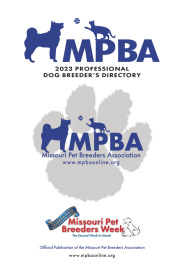
Prepare Yourself
Here are a few tips provided by the American Kennel Club to help you understand the commitment that you face as your new family member enters your home.
Get Ready
1.Prepare Yourself *** Get ready for your new friend before you bring him home, to make sure the transition will be as smooth as possible. Buy food, treats, a collar and leash, toys, grooming tools and other necessities in advance so your dog or puppy will have everything he needs.
2.Make a Schedule *** You and your family members should decide who will be responsible for food, water, walking, exercise, clean-up and grooming. Post a schedule of tasks in a visible area of the house to remind everyone of their responsibilities.
3.Dog-Proof Your Home *** Prepare your home before your new dog arrives. Move breakables or "chewables" to higher ground. Make electrical cords inaccessible to curious paws and noses. Block off any area of the house that you want off-limits to the dog. Put the lid down on your toilet and your shoes up in your closet. Block access to any house or garden plants that may be toxic to dogs.
4.Set a Containment Policy *** It is essential that you have a secure method of keeping your dog on your property. Check your fence for spots vulnerable to chewing or digging. If your yard is not fenced, consider a large dog run or invisible fencing. If your property is not fenced in some way, stress to family members that the dog must be leashed at all times when taken outdoors.
5.Get a Collar *** Your dog should wear a flat leather or nylon collar with a buckle at all times, except when in a crate. (The buckle can catch on the crate and cause injury.) The collar should be tight enough that it will not slide over the dog's ears, but loose enough that you can fit two fingers between the collar and the dog's neck. Check the fit of the collar often, especially if you have a fast-growing puppy.
6.Make a Bed *** Every dog needs a quiet place to call his own. Create a comfortable area, whether a crate, a mat or a pile of blankets, for your dog to go to when he needs rest or privacy.
7.Buy Some Toys *** Provide your dog with a variety of toys to prevent him from playing with your socks and shoes, your morning paper, or your child's favorite doll. Get some toys that you and your dog can play with together, such as balls and plush toys, and some things to keep him busy when he's alone, such as chewies or rope bones. Never leave your dog unattended with any toy that has small, detachable parts.
8.Find a Veterinarian *** You should choose a veterinarian for your dog as soon as possible. Have your dog examined by the vet within a few days of his arrival. Give your vet copies of the dog's health records, and set up a vaccination and check-up schedule. The AKC Pet Healthcare Plan can help with the cost of providing quality healthcare throughout your dog's life.
Bring Your Dog Home
9.Welcome Your New Pet *** At last! You've made all the preparations, and it's finally time to bring your new friend home. Give him the best welcome possible. With love, patience and mutual respect, he will feel like part of the family in no time.
10.Let Your Dog Adjust *** Give the dog time to adjust to his new home. The dog is bound to feel insecure and frightened by a change in environment, and a pup may be homesick for his mother or littermates. Show him to his crate or bed, and where to find food and water. Then leave him alone to explore the new surroundings.
11.Name Your Dog *** Your dog will need a good name. Your breeder may have suggestions or even requirements for his AKC-registered name, but his call or informal name is up to you. Older adopted dogs can adjust quickly to a new name.
12.Make Introductions *** Introduce your dog to your household slowly. Many pairs of hands petting him at once will only frighten him. Later, introduce him to neighbors, regular visitors and other family members. Give your dog a sense of who your - and your dog's - friends are.
13.Introduce Other Pets *** Other companion animals in your home should also be properly introduced to your new dog or puppy. Don't expect them to get along right away, and don't try to force them to play together. Give them time to adjust to one another.
14.Housetrain *** Whichever method of housetraining you have chosen - crate training, paper training or litter box - make sure that all members of the family enforce it consistently. Accidents happen, so have a procedure for clean-up.
15.Set House Rules *** Teach your dog from the beginning what is and is not appropriate behavior. If something is "OK" today, your puppy will think it's OK forever. Make sure that every member of the family enforces the house rules. Consistency is the key to having a well-behaved pet.
Keep Your Dog Healthy
16.Go to the Veterinarian *** Set up a schedule for regular check-ups with your veterinarian. Ask the vet questions about your dog's diet, behavior, activity level or other concerns. Contact the veterinarian at once if your dog seems ill or in pain. The AKC Pet Healthcare Plan can help with the cost of providing quality healthcare throughout your dog's life.
17.Feed a Good Diet *** Work with your veterinarian or breeder to find the food that is best for your dog's age, size and activity level. Keep the diet consistent. Always provide plenty of fresh, clean water.
18.Exercise *** Dogs need regular exercise to ensure continuing good health. Take your dog for walks, run around in the yard, throw a ball around - anything to get him up and moving. This will benefit his health and could prevent behavior problems.
19.Vaccinate *** Dogs should follow a strict schedule of vaccinations to prevent diseases. Keep your dog current on his vaccinations, following the schedule recommended by your veterinarian. Keep a copy of your dog's vaccination records handy.
20.Prevent Disease *** You can take steps to prevent other diseases not covered by the regular series of vaccinations. Depending on the area of the country you live in, your dog could be at risk for diseases such as heartworm and Lyme disease. Ask your veterinarian for advice on prevention. The AKC Pet Healthcare Plan can help with the cost of providing quality healthcare throughout your dog's life.
21.Repel Fleas and Ticks *** Aside from discomfort, parasites such as fleas and ticks can cause serious diseases. Keep your dog, his bedding, and your home free from parasites by using the method recommended by your veterinarian.
22.Know Your Dog's Patterns *** You should become familiar with your dog's patterns in terms of eating, drinking, sleeping and relieving himself. Any major variations in these patterns could indicate illness and should be reported to your veterinarian.
23.Provide Chew Toys *** Dogs never outgrow the need to chew. Protect your possessions by providing a variety of chew toys to satisfy your dog's urges.
24.Bathe Your Dog *** A clean dog is a healthy dog. Bathe your dog on a regular basis appropriate to his breed and environment. Overbathing can be harmful to a dog's skin. Use a good shampoo and be sure to rinse well. If bathing your dog is more than you can handle, take him to a groomer who will provide you with a professional look for your dog.
25.Groom Your Dog *** All dogs should be groomed regularly for health and best appearance. Some short-coated breeds need just a quick brushing every week, while some longer-coated breeds need daily brushing to prevent matting and to reduce shedding. If your dog requires clipping or sculpting, you may want to consult a professional groomer.
26.Clip Those Nails *** Keeping your dog's nails short will keep him comfortable, prevent injury to his feet, and may save the surface of your floors. If you can hear your dog's nails click on a hard surface, they need to be trimmed. Ask your veterinarian for advice on clipping your dog's nails yourself or if you are having him groomed the groomer is happy to do this for you.
27.Clean Those Teeth *** To prevent tooth decay and gum disease, clean your dog's teeth regularly. Most dogs will accept a "toothbrush" if introduced to it slowly and gently. You can also give your dog products such as hard biscuits, rope bones and nylon chews to keep his teeth clean.
28.Prevent Obesity *** Keep your dog healthy by maintaining him at an appropriate weight. Feed him a well-balanced diet and give him plenty of exercise. Don't give in to begging - "people food" is generally bad for dogs.
29.Know Your Breed's Health Risks *** You should be aware of common health problems in your breed, how to prevent them, and how to recognize their onset. For example, some giant breeds are prone to bloat, while some short-faced breeds are prone to respiratory problems. Ask your breeder or veterinarian for information about any signs or symptoms you should watch for in your pet.
20.Protect From Poisons *** Make sure that your home and yard are free from poisonous substances, such as antifreeze, which tastes good but can cause serious illness or even death. Keep your veterinarian's number handy in case of accidental ingestion.
21.Be Alert to Changing Needs *** As your dog ages, his needs will change. He may require a different diet, need more sleep, and be less active. Do what you can to keep him comfortable. Your dog may not be as "fun" as he once was, but he is the same dog you loved as a puppy. You should do everything you can to pamper him in his final years.
22.End Suffering *** If, due to illness or old age, your dog reaches a point where his quality of life is severely compromised, arrange to end his life humanely. Letting go is sometimes the kindest thing you can do. Don't prolong the suffering because you fear the pain of losing your dog.


